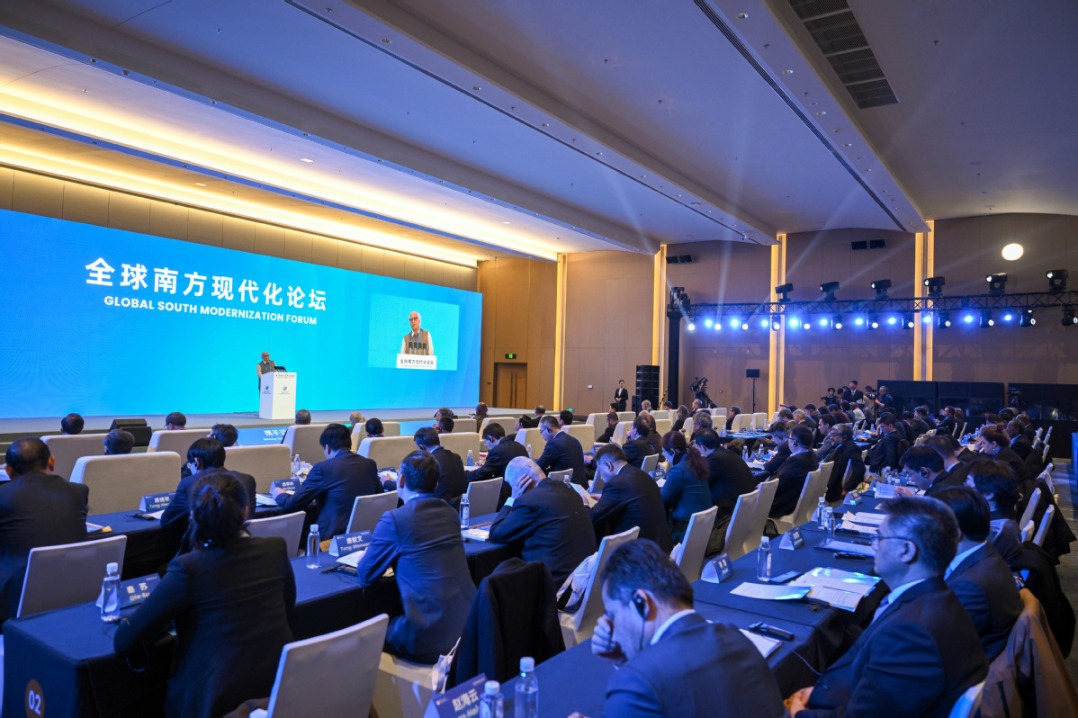River protection efforts bear fruit


An aerial view of the construction site of of a bank in the Three Gorges reservoir in Maoping town of Yichang city, Hubei province, April 9, 2020. The project is aimed at enforcing the reservoir bank and improve the ecological environment of the Yangtze River. [Photo/Xinhua]
The joint center is a platform that "effectively integrates scientific research and administrative management", said its head, Li Haisheng.
Many other campaigns are also proceeding, and in the past few years chemical plants near the river have been dismantled or relocated far from it, and illegal ports closed to stop them polluting the river.
In January, a 10-year fishing moratorium began in 332 conservation areas in the Yangtze River Basin to stem the free fall in the river's biodiversity. Ecological problems caused by small hydropower stations were also targeted for rectification in a campaign launched by four ministries in the past year.
A law devoted to Yangtze River conservation was drafted and submitted to national legislators for a first review last year.
Xu said that being an intermediary had contributed a lot to making the mechanism more efficient.
"Once any demands emerge in the bureau, they can always get in touch with me and let me know first," he said. After learning the details, he can return to the institute that day to discuss the issue with Professor Wu Zhenbin, who works there and heads the team in Wuhan. Experts from the eight institutes, who have a range of expertise, could then gather and come up with a preliminary solution the next day, Xu said.
The national joint research center said that by the end of last year, teams it deployed had introduced around 600 treatment technologies and solutions drawn from scientific research to the 58 cities in the Yangtze basin.
The solutions that researchers assigned to the Yangtze protection teams apply to the river's environmental problems yield tailor-made and feasible solutions for its conservation, said Li, who is also president of the Chinese Research Academy of Environmental Sciences.
The Yangtze has seen a continuous improvement in its water quality in recent years. By the end of last year, water from 91.7 percent of monitored sections of the river was at or above Grade III, the third-highest in China's five-tier quality system for surface water, up 4.2 percentage points year-on-year. Water from 0.6 percent of the sections was below Grade V, the lowest quality, down by 1.2 percentage points.
'Mother river'
Other rivers that suffered similar problems during the country's evolution from an agricultural nation to an industrial one are now also seeing their ecosystems restored.
Government data show that 68.9 percent of surface water across the country had a good quality rating-Grade III or above-in 2012, while 10.2 percent was rated below Grade V.
























